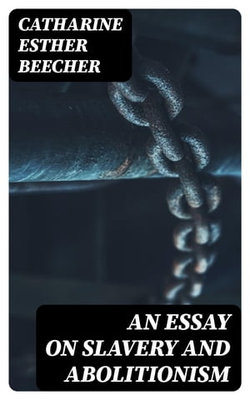In 'An Essay on Slavery and Abolitionism,' Catharine Esther Beecher addresses a complex and sensitive issue with the moral vigor and social perspective characteristic of 19th-century American thought. The essay explores the twin issues of slavery and abolitionism, particularly focusing on the roles and duties of American women in these movements. Her incisive analysis moves beyond a mere polemic, providing a nuanced view from the angle of feminine moral responsibility within a firmly Christian framework. The literary style is erudite yet accessible, reflecting both the educational background of the author and her intention to reach an audience of her contemporaries. Informed by the prolific biblical references and the conservative ethos of her time, the work is situated at a pivotal moment in the pre-Civil War context, making it a valuable artifact of its era's prevailing ideologies and debates. Catharine Esther Beecher emerges from her text not merely as an author, but as an educator, moral reformer, and a staunch advocate for women's roles within society. Her lineage—as the daughter of Lyman Beecher, a prominent theologian—shaped her views and moral convictions. Beecher wrote from a position deeply entwined with her own life experiences as a teacher and leader in female education, laying the groundwork for arguments that reflect her belief in the power and duty of women in reforming society. This text is representative of her broader mission: to promote a vision in which women's moral influence extends into the public sphere, even as it intersects with contentious issues like slavery. This edition of 'An Essay on Slavery and Abolitionism' is recommended for students and scholars of American history, feminist theory, and religious studies, as well as for general readers seeking to understand the complexities of antebellum American society from a woman's perspective. Beecher's insights provide a unique lens through which to examine the cultural and ethical debates of her time. Readers with an interest in the antecedents of modern feminist thought and the role of women in social reform movements will find in this work a crucial piece of the intellectual jigsaw of American social history.



Share This eBook: